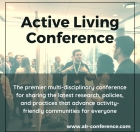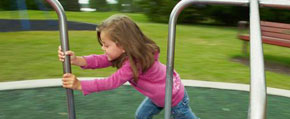ALR Annual Conference
3-HOUR Conference Workshop Sessions (3:00 p.m. - 6:00 p.m.)
1) International Physical Activity and the Environment (IPEN) Study: Data Analysis Strategies
Ester Cerin, PhD, Deakin University
2) Systematic Observation of Physical Activity using iSOPARC: An iPad Application for Research and Practice
Michael Kanters, PhD, North Carolina State University
Jason Bocarro, PhD, North Carolina State University
Thomas McKenzie, PhD, San Diego State University
Luis Suau, PhD, Shaw University
Troy Carlton, BS, North Carolina State University
1.5-HOUR Conference Workshop Session 1 (3:00 p.m. - 4:30 p.m.)
1) Telling Your Story with Photovoice: A Community-based Participatory Research Tool
Rene Mahaffey Harris, BS, The Center for Closing the Health Gap in Greater Cincinnati
Dwight Tillery, JD, The Center for Closing the Health Gap in Greater Cincinnati
Rhonda Lindsey, The Center for Closing the Health Gap in Greater Cincinnati
Melicia Whitt-Glover, Gramercy Research Group
2) Emerging Tools for Simulating the Health Impacts of Environmental and Individual Interventions
Larry Frank, PhD, Urban Design 4 Health
Sanjay Basu, PhD, Stanford Prevention Research Center
Jared Ulmer, MPH, MUP, Urban Design 4 Health
In this session, we will describe the characteristics of a variety of quantitative health impact assessment models, discuss their potential applications, and engage participants in using existing tools and developing future tools. The workshop will begin with an overview of three types of simulation models that are being used or have been proposed for conducting health impact assessments or for conducting exploratory research of built environment influences on health: macro-simulation models, agent-based micro-simulation models, and activity-based travel demand models. Following the overview presentations, participants will split up into three break-out groups based on the three topics above. Where operational models are available (e.g. the SANDAG CommunityViz model is an operational example of a standalone macro-simulation model), participants will have an opportunity to design a scenario and evaluate the predicted health outcomes. Where models are still in a conceptual stage, the breakout groups will provide an opportunity to discuss development considerations and potential applications in further depth. The session will conclude with a brief wrap-up discussion where participants can share impressions on the various models, ask additional questions, and provide recommendations to the panelist on future model development and application.
3) Data in Motion: Measuring Physical Activity Using Population-based Data
Suzanne Ryan-Ibarra, MPH, MS, Public Health Institute
Danielle Ewing, MPH, Public Health Institute
4) The Trail Modeling and Assessment Platform (T-MAP): Building New Tools for Trail Development
Tracy Hadden Loh, PhD, Rails-to-Trails Conservancy
Keith Laughlin, Rails-to-Trails Conservancy
Greg Lindsey, PhD, University of Minnesota
Michael Lowry, PhD, University of Idaho
5) Utilizing the “Quantified Self” to Move from Niche to Norm: Strategies for Incorporating Modern Technologies into Assessment and Evaluation
Peter James, ScD, MHS, Harvard School of Public Health
Jana Hirsch, MES, University of Michigan
J. Aaron Hipp, PhD, Washington University in St. Louis
Genevieve Dunton, PhD, MPH, University of Southern California
Jacqueline Kerr, PhD, MSc, University of California, San Diego
6) Active Kids Do Better: A Closer Look at Let’s Move! Active Schools
Tiereny V. Lloyd, MPH, SHAPE America
Carly Braxton, SHAPE America
1.5-HOUR Conference Workshop Session 2 (5:00 p.m. - 6:30 p.m.)
1) Systematic Observation of Physical Activity and Its Contexts
Thomas McKenzie, PhD, San Diego State University
Monica Lounsbery, PhD, University of Nevada, Las Vegas
2) Modeling the Impact of Built Environment Interventions: An Introduction to Causal Modeling
Daniel Fuller, MSc, PhD, University of Saskatchewan
Meghan Winters, PhD, Simon Fraser University and Vancouver Coastal Health Research Institute
3) Understanding Physical Behaviour and Behavioural Change: How We Can Derive Context Rich Information from Body-worn Accelerometer Data
Malcolm Granat, PhD, University of Salford
Douglas Maxwell, BSc, PAL Technologies Ltd
4) Beyond Complete Streets: Reclaiming America’s Streets to Promote Active, Healthy Living
Daniel Iacofano, PhD, MIG, Inc.
Mukul Malhotra, MA, MIG, Inc.
Susan Goltsman, BA, MLA, MS, MIG, Inc.
5) Promoting Safety and Physical Activity: Integrating Injury Prevention in Active Living Research, Policy and Practice
Keshia Pollack, PhD, Johns Hopkins Bloomberg School of Public Health
Shannon Frattaroli, PhD, MPH, Johns Hopkins Bloomberg School of Public Health
6) Using Communications & Marketing Techniques to Promote Healthy Eating and Active Living Behaviors
W. Douglas Evans, PhD, The George Washington University
Melissa A. Napolitano, PhD, The George Washington University
7) State Laws Impacting Community Use of Schools Property: Evaluation Approaches and Implications for Research and Policy Implementation
Natasha Frost, JD, Public Health Law Center
Carter Headrick, American Heart Association
Scott Kelly, JD, Public Health Law Center
Mary Marrow, JD, Public Health Law Center
Frank Perna, EdD, PhD, National Cancer Institute
Stefanie Winston, JD, MPH, The MayaTech Corporation
7:00 p.m. - 8:00 p.m. Optional Physical Activity (Yoga and Zumba)







